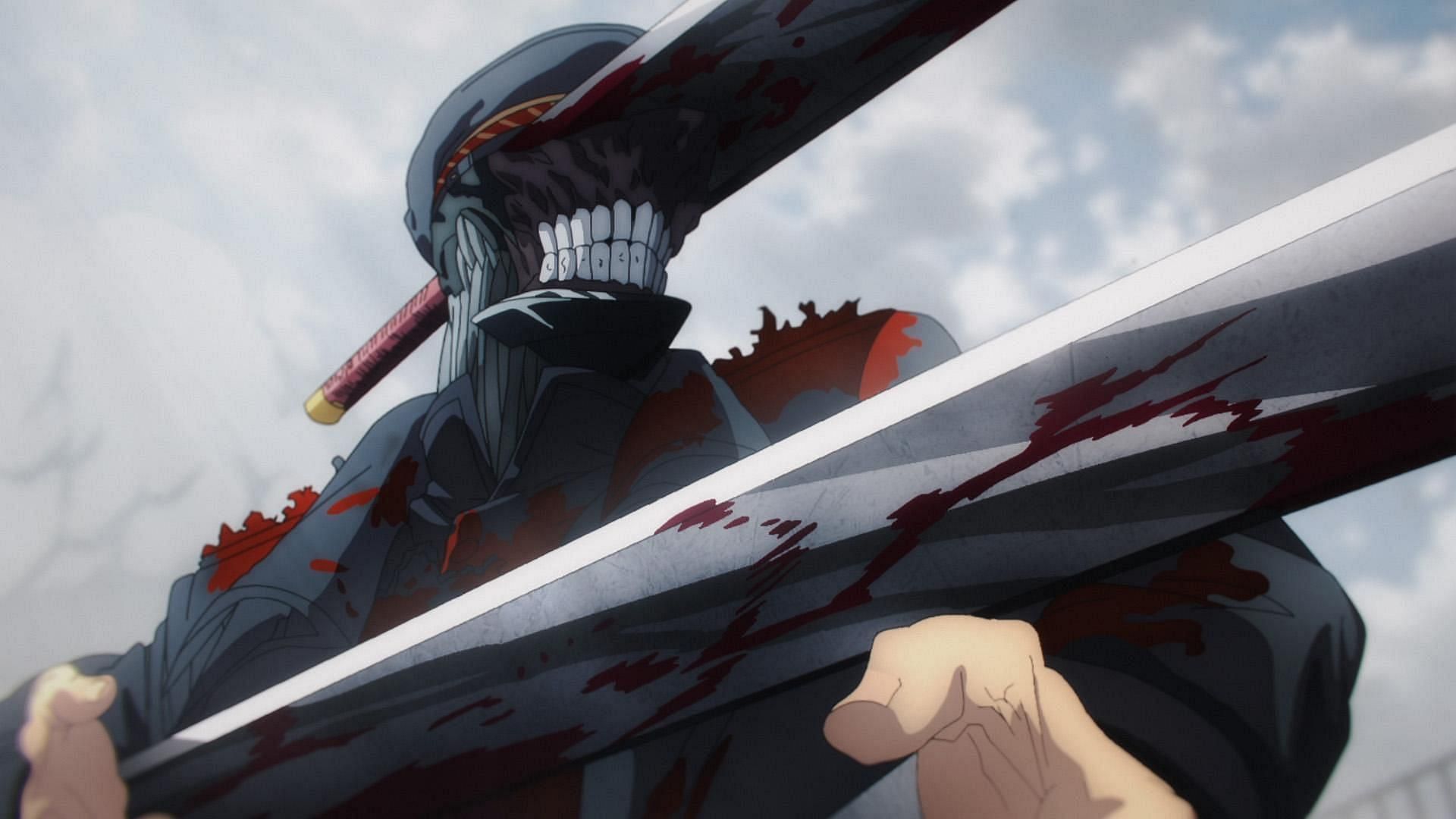Chainsaw Man Chapter 144 marks a pivotal juncture in the captivating narrative, delving into profound character development and the intricate use of symbolism to convey potent themes and philosophical implications.
As the plot unfolds, the reader witnesses significant shifts in the characters’ personalities, relationships, and motivations, shaping the course of events in unforeseen ways. The interplay between these characters becomes a catalyst for the plot’s progression, creating a dynamic and immersive reading experience.
Character Development and Dynamics
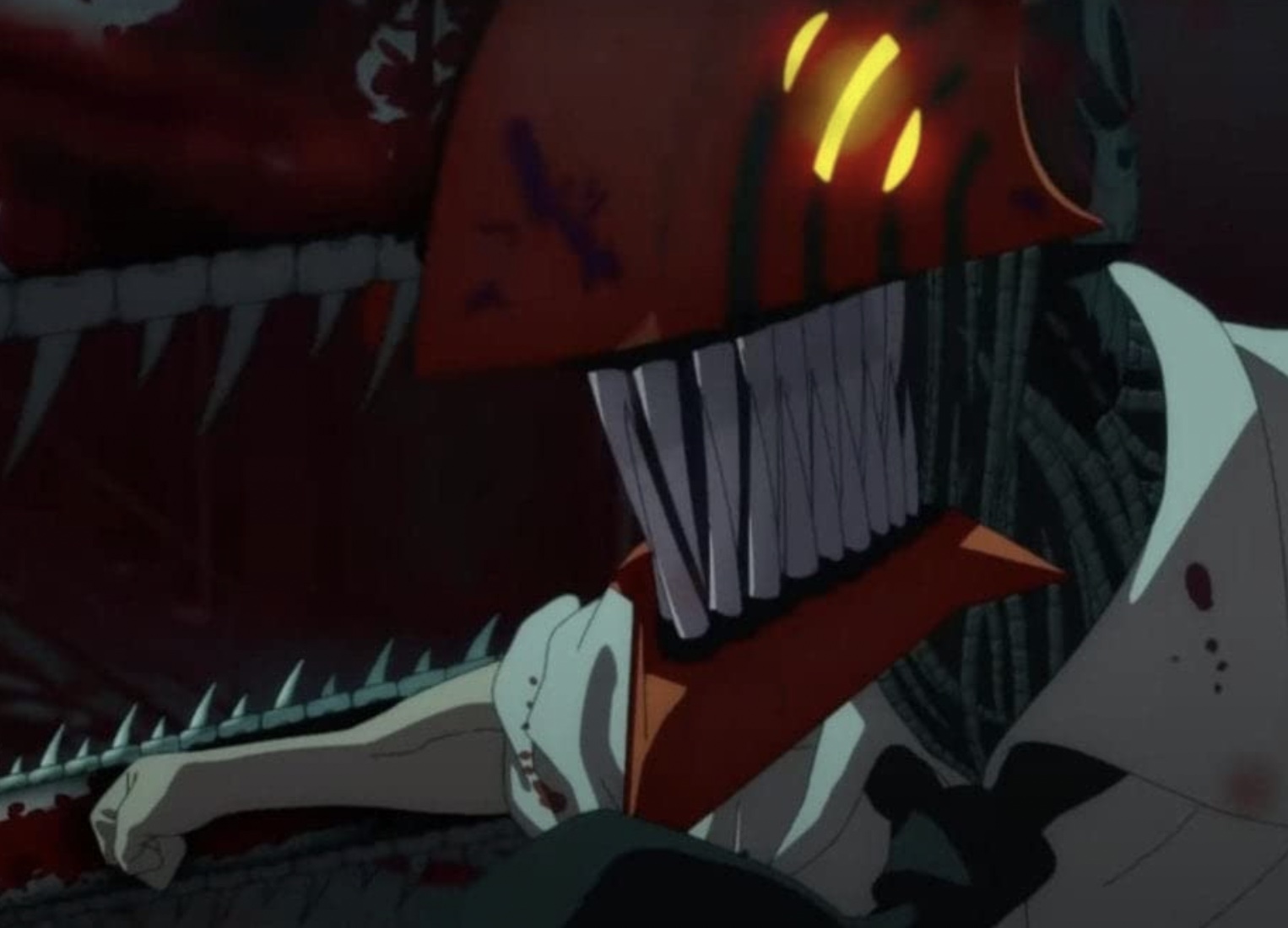
In chapter 144, the characters of Chainsaw Man undergo significant developments in their personalities, relationships, and motivations. These changes are driven by the intense events of the previous chapters, which have tested their limits and forced them to confront their own beliefs and desires.
One of the most notable developments is the growth of Denji’s character. Having faced death and loss, he has become more mature and determined. He is no longer the naive and reckless teenager he once was, but a hardened fighter who is willing to do whatever it takes to protect his friends and loved ones.
Denji’s Relationships
Denji’s relationships with other characters have also undergone significant changes. His bond with Power has deepened, and he has come to see her as a true friend and confidante. He is also developing a romantic relationship with Makima, although he is still unsure of his feelings for her.
Denji’s relationship with Aki has become more strained. Aki is still struggling to come to terms with the death of Himeno, and he blames Denji for her death. However, Denji is determined to prove to Aki that he is not responsible for Himeno’s death, and that he is worthy of his friendship.
Plot Progression and Climax
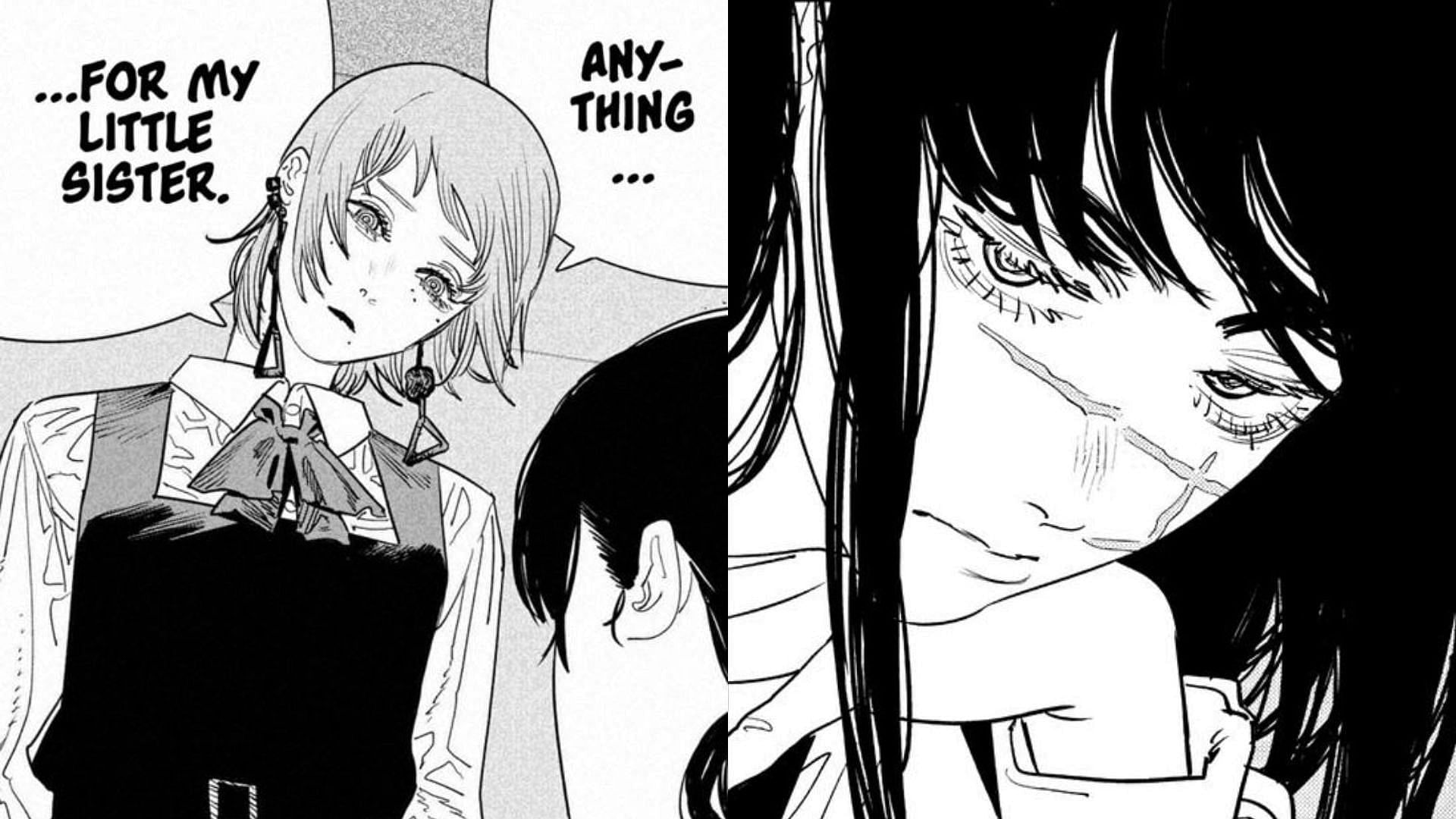
Chapter 144 of Chainsaw Man propels the narrative forward with several key developments, culminating in a thrilling climax that sets the stage for the future of the story.
The Attack on the High School, Chainsaw man chapter 144
- The chapter opens with the surprise attack on Tokyo Metropolitan Curse Technical College by the Bat Devil and his minions.
- The students and faculty are caught off guard, and the ensuing chaos leads to the deaths of several characters, including Kobeni Higashiyama.
Chainsaw Man’s Intervention
- Denji arrives at the scene and transforms into Chainsaw Man, determined to protect his friends and defeat the Bat Devil.
- A fierce battle ensues, with Chainsaw Man displaying his incredible power and resilience.
The Climax: Denji’s Transformation
- During the battle, Denji is severely injured, but he manages to use his blood to create a new Chainsaw Man form.
- This new form is even more powerful than before, and it allows Denji to finally defeat the Bat Devil.
Significance of the Climax
- The climax of Chapter 144 marks a significant turning point in the story.
- It demonstrates Denji’s growth and development as a character, as he becomes more powerful and confident in his abilities.
- The chapter also sets up future conflicts, as the Bat Devil’s defeat has unintended consequences.
Foreshadowing and Pacing
The events leading up to the climax of Chapter 144 have been carefully foreshadowed throughout the series.
- Denji’s growing power and determination have been hinted at in previous chapters.
- The Bat Devil’s threat has been building for several arcs, and its attack on the high school is a culmination of these events.
The pacing of the chapter is also expertly handled, with the tension and action building steadily towards the explosive climax.
Symbolism and Imagery
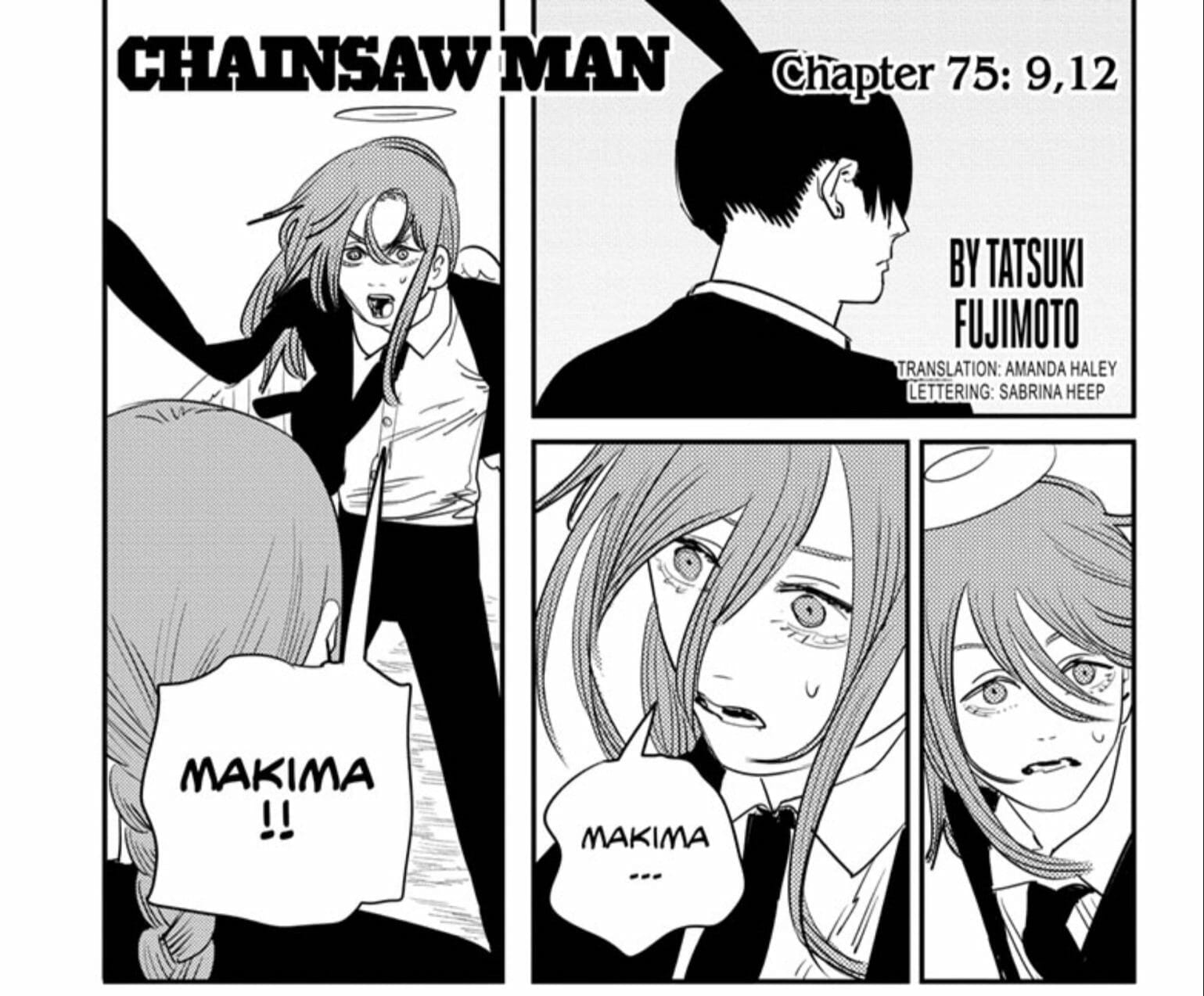
Chapter 144 of Chainsaw Man employs evocative symbolism and imagery to convey the chapter’s themes and atmosphere. These elements enhance the reader’s understanding of the characters, their motivations, and the complex world they inhabit.
Chainsaw and Violence
The chainsaw remains a central symbol throughout the chapter. Its brutal and relentless power reflects Denji’s own struggle against his inner demons and the external threats he faces. Each swing of the chainsaw represents a violent act, whether it be against an enemy or against himself. The blood and gore that accompany these acts serve as a stark reminder of the harsh and unforgiving nature of Denji’s world.
Fire and Transformation
Fire is another prominent symbol in the chapter. It represents both destruction and renewal. The burning of the gun devil’s flesh symbolizes the destruction of a formidable foe, while the subsequent rebirth of the fire represents the hope and potential for a better future. The fire also serves as a metaphor for Denji’s own transformation, as he gradually embraces his role as the Chainsaw Man and finds his place in the world.
Darkness and Loneliness
Darkness and loneliness are pervasive throughout the chapter. The shadowy landscapes and isolated characters reflect the emotional turmoil and isolation that many of the characters experience. Denji’s struggles with his own identity and his desire for connection are particularly poignant in these moments. The darkness also serves as a backdrop for the violence and despair that plague the characters’ lives.
Themes and Philosophical Implications: Chainsaw Man Chapter 144
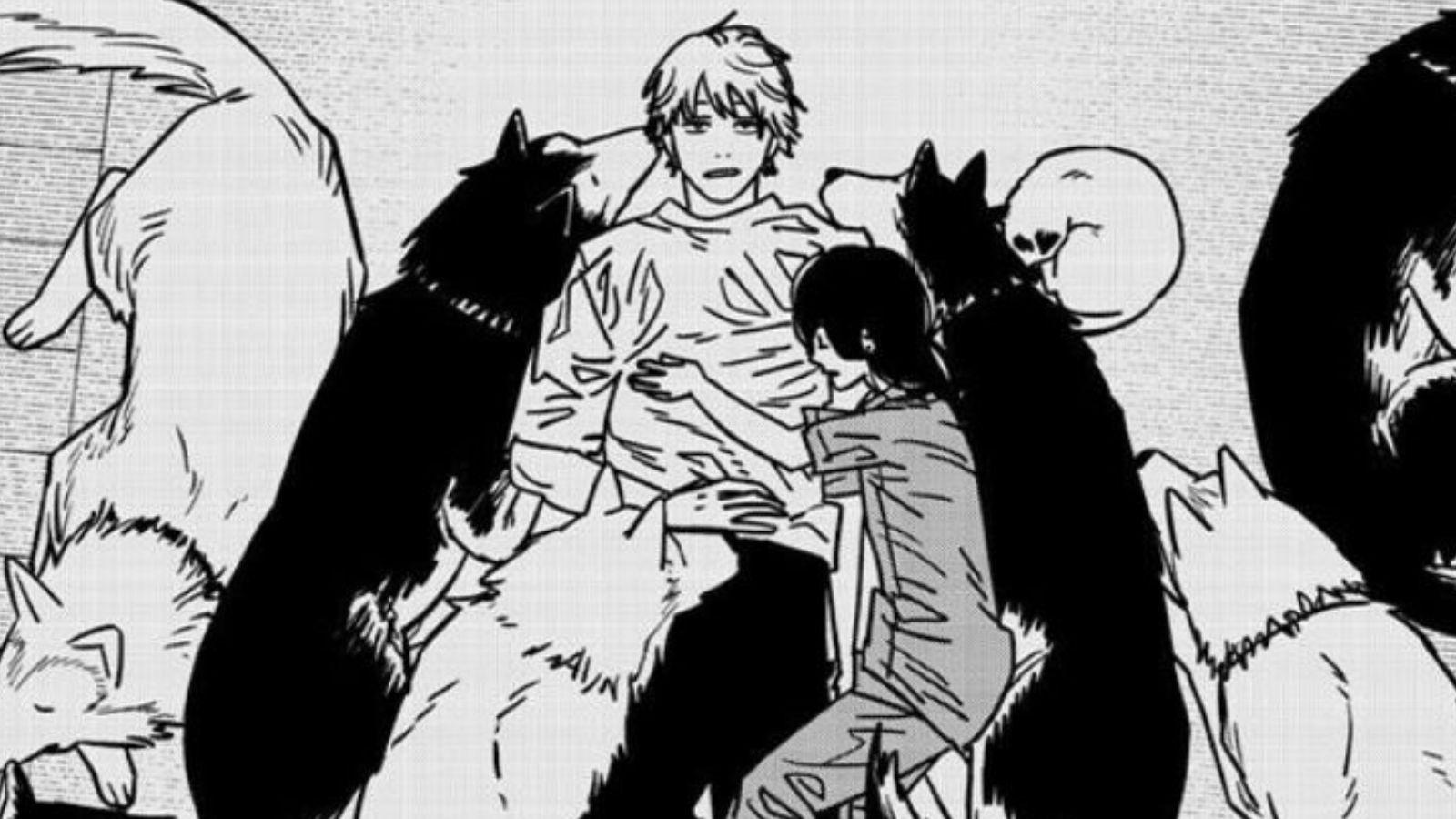
Chapter 144 of Chainsaw Man delves into profound themes and philosophical concepts that resonate with the characters, plot, and overall message of the story. These themes challenge the readers’ own beliefs and values, prompting introspection and reflection.
Existentialism and Identity
The chapter explores the existential crisis faced by Denji as he grapples with his identity and purpose in a chaotic and often meaningless world. The concept of “self” is questioned as Denji struggles to reconcile his human and devilish aspects, blurring the lines between good and evil.
- Denji’s transformation into the Chainsaw Man forces him to confront his duality and the inherent contradictions within his own nature.
- The chapter raises questions about the nature of identity and the extent to which one’s actions define their true self.
Morality and Sacrifice
The chapter also examines the complex interplay between morality and sacrifice. Denji’s actions as the Chainsaw Man often involve violence and bloodshed, yet he is driven by a desire to protect those he cares about. The chapter challenges traditional notions of good and evil, suggesting that sometimes necessary sacrifices must be made for the greater good.
- Denji’s decision to kill Makima, despite her manipulative nature, is a testament to his willingness to sacrifice his own happiness for the sake of others.
- The chapter explores the moral ambiguity of Denji’s actions, blurring the lines between hero and villain.
Power and Control
Chapter 144 also delves into the themes of power and control. Makima’s manipulative abilities and her desire for absolute control over others are juxtaposed with Denji’s own struggles with his newfound powers. The chapter raises questions about the corrupting influence of power and the dangers of unchecked authority.
- Makima’s manipulation of Denji and her attempts to control his actions highlight the dangers of unchecked power.
- Denji’s resistance to Makima’s control and his assertion of his own free will demonstrate the importance of resisting tyranny and fighting for one’s own autonomy.
Last Word

In conclusion, Chainsaw Man Chapter 144 stands as a testament to the power of storytelling, seamlessly intertwining character development, symbolism, and philosophical reflections. It leaves the reader with a profound sense of introspection and a lingering appreciation for the complexities of human nature and the search for meaning in a chaotic world.
Commonly Asked Questions
What is the significance of the climax in Chapter 144?
The climax serves as a turning point in the narrative, revealing a pivotal shift in the protagonist’s journey and setting the stage for future developments.
How does the use of symbolism contribute to the chapter’s atmosphere?
The symbolism employed in Chapter 144 creates a haunting and evocative atmosphere, enhancing the emotional impact of the events and deepening the reader’s understanding of the characters and their struggles.
What are some of the underlying themes explored in Chapter 144?
Chapter 144 delves into themes of identity, purpose, and the nature of good and evil, challenging the reader to confront their own beliefs and values.
